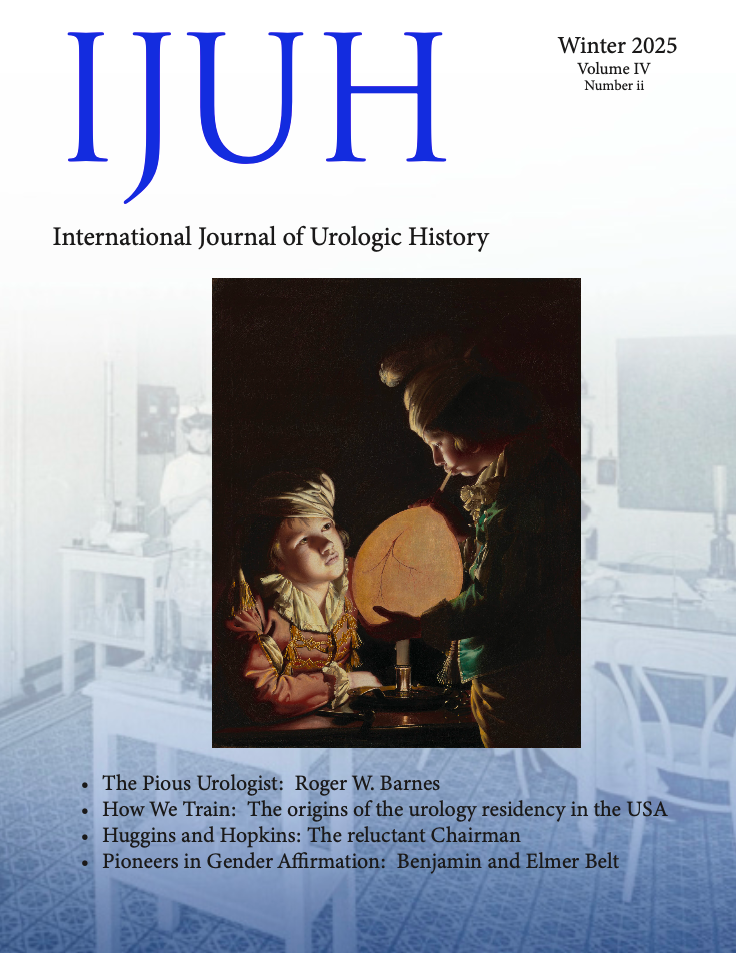G.G. Smith: A Urologist on the Western Front
Abstract
Objectives
World War I (WWI) left a devastating impact on Europe. Urologist George Gilbert (GG) Smith served with a Harvard-associated group of surgeons and nurses stationed at the western front from 1915-1916. First-hand accounts and medical observations from the front are rare, so Smith’s wartime diary is a valuable source to gain further insight into what was once termed the ‘War to End All Wars’. Our objective was to study Smith’s diaries from WWI to better understand the personal and professional experiences and sacrifices of those who fought and served
Methods
The GG Smith diaries were obtained courtesy of the Smith family. Archives were consulted from the American Urological Association (AUA) William P. Didusch library (Linthicum, MD), Center for the History of Medicine at Countway Library (Cambridge, MA), the British Red Cross, the American Hospital of Paris, and cited secondary sources.
Results
Smith graduated from Harvard medical school in 1908 after training at Massachusetts General Hospital (MGH). He joined the growing urology faculty at Harvard under the leadership of Hugh Cabot. Following the start of WWI and before the United States’ formal involvement in the war, the Harvard Surgical Unit (HSU) was one of a number of ‘neutral’ medical corps from America’s elite hospitals, composed of individual doctors and nurses who were deployed wherever they were needed for a 3-month tour of duty. As a member of the HSU, Smith was stationed by the warfront, braving air attacks and bombs to care for hundreds of wounded, combatting infections, trauma, and fractious personalities.. The skill in leadership he developed served him well as President of the AUA from 1935-1936, Chair of Urology at MGH from 1938-1945, and President of the Massachusetts Society of Social Hygiene from 1937-1945
Conclusions
Smith’s war time diary is testimony to the great philanthropic efforts of America’s institutions during WWI, to the remarkable progress in medical and surgical care that was motivated by the devastation of that war, and to the diversity of people whose pragmatic heroism contributed to the Allied victory.
